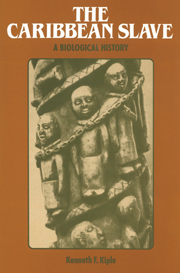Introduction
Published online by Cambridge University Press: 19 October 2009
Summary
In some countries foreigners and natives are as differently affected by certain contagious disorders as if they had been different animals…
Charles Darwin (1836)We need to remind ourselves–those of us in the Western world at least–that to live long enough to be haunted by the specter of cancer or heart disease is a very rare and very recent privilege. We no longer need concern ourselves with epidemic disasters that could easily spoil that privilege by carrying away 10, 20, even 40 percent of the members of a community, nor must we live in fear of lingering, hideously disfiguring diseases, which would condemn us to a living death whose termination by cancer or heart failure would be seen as a blessing.
This study has treated a different time when such illnesses were an omnipresent fact of life in a region then regarded more as a disease-ridden hell than an earthly paradise. We have seen why this was the case for blacks. Chapter 10 shows why it was also the case for whites by examining their relationship with yellow fever and malaria in the area. In so doing, it picks up the threads of the treatment begun in Chapter 1 that demonstrated the role that yellow fever and malaria resistance played in the enslavement of the black. One concern of Chapter 10 is to reveal as fully as possible the extent to which blacks did indeed seem resistant to these diseases relative to whites. Another concern is to show in the process how this pair of tropical killers victimized blacks despite this resistance, or perhaps better because of it, while they also influenced the geopolitical and demographic history of the West Indies in ways not yet fully appreciated.
- Type
- Chapter
- Information
- The Caribbean SlaveA Biological History, pp. 159 - 160Publisher: Cambridge University PressPrint publication year: 1985



